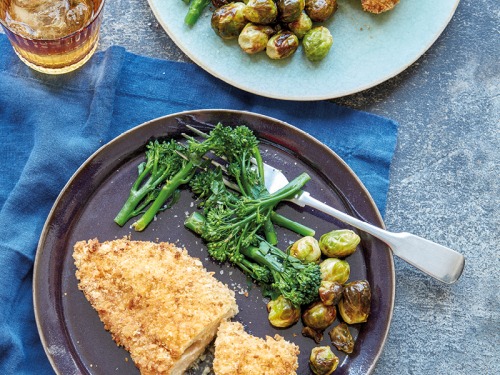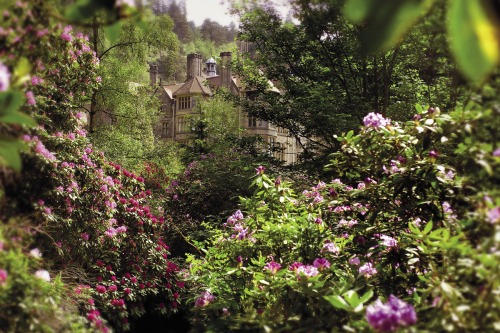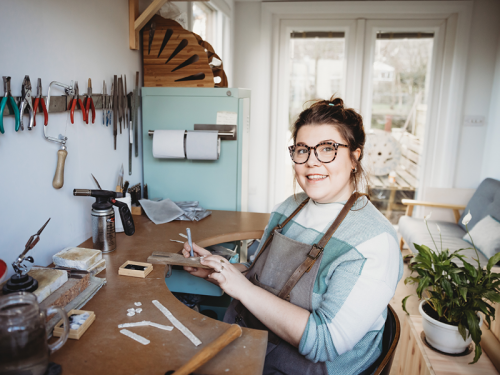The Charity Using Gardening to Help Refugees and Asylum Seekers in Gateshead
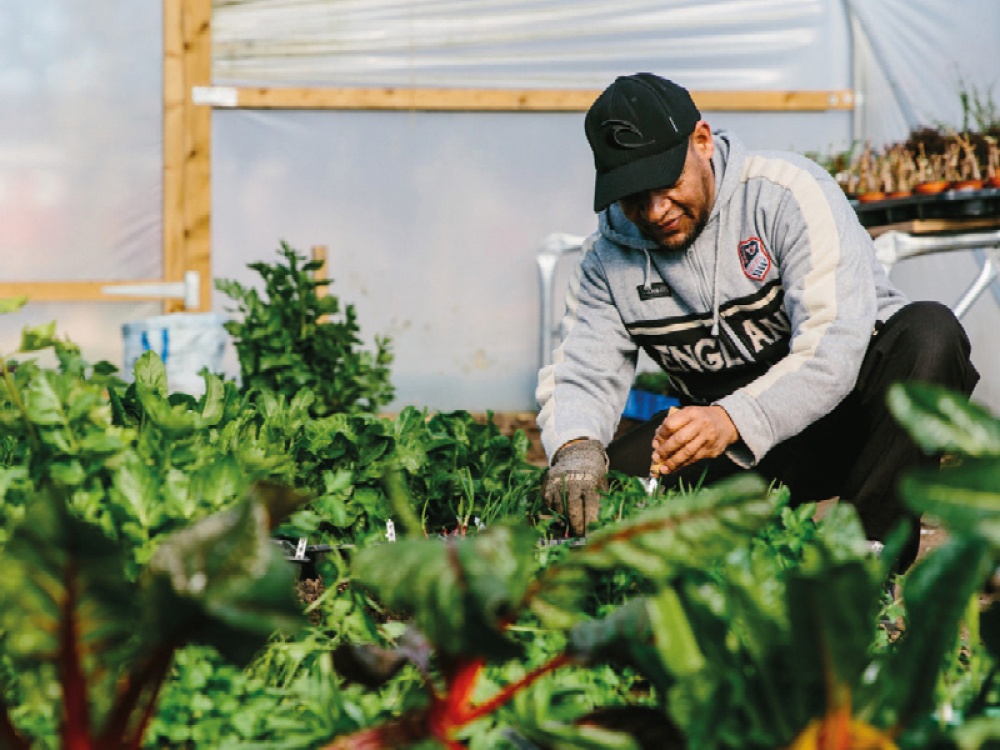
For 21 years, the Comfrey Project has been using gardening to support the wellbeing of refugees and asylum seekers in Gateshead. Living North visited their centre to find out more
It’s indicative of how deeply welcoming they are that as soon as I get in contact, I am invited to a party in their community centre. I arrive early for the party and the centre is still relatively quiet. Staff and volunteers are hurriedly finishing setting up the room, putting food out on tables, and making sure everyone knows what the day’s schedule is. In the midst of this, the Comfrey Project’s current director Eleni Venaki pulls herself away from the bustle of activity to let me ask her a few questions.
She tells me that participants arrive at the project through a number of routes, either self-referred or referred by other organisations, but as soon as they join they become part of a team.
‘Once they join us, they join us as volunteers,’ she explains. ‘This is really important and it’s really at the basis of our impact. This is a place where they feel their pride is kept intact because it’s a place where they know that they contribute.
‘We have a really small staff team. It’s very volunteer-led, so the staff’s role is mostly about coordinating people to take ownership, to get the skills and the confidence that they need to be able to manage things themselves.’
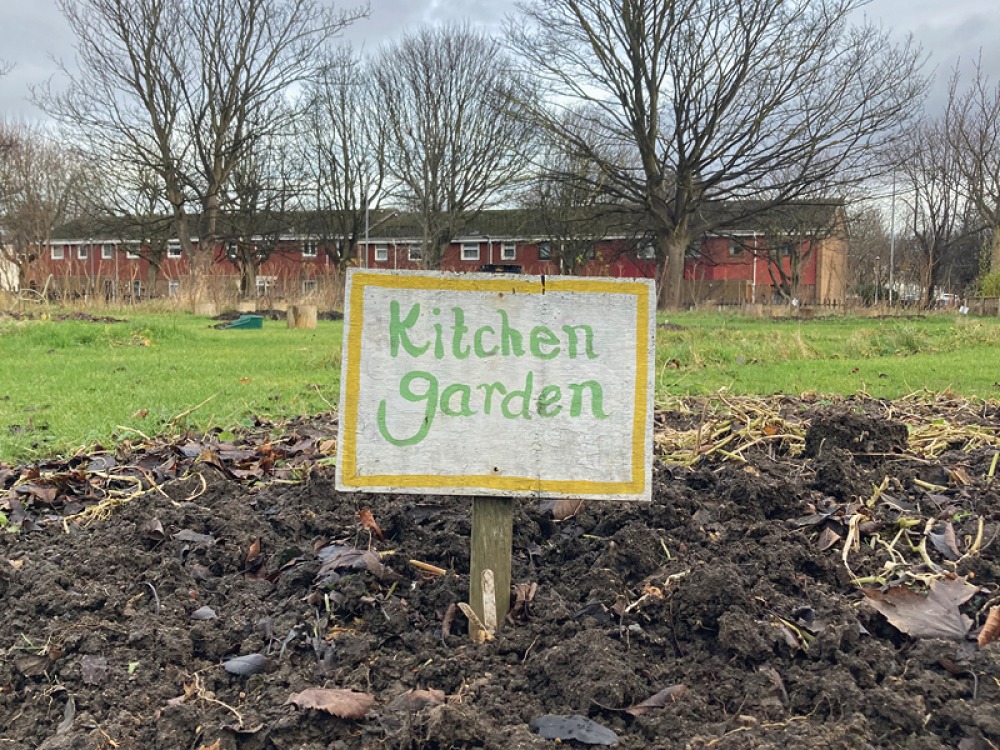
For some volunteers, that means helping them to deliver workshops based on pre-existing skills. For example Eleni tells me that one volunteer was a jeweller in his home country and the project provided him with the materials to run workshops transforming dried flowers into jewellery. Another volunteer loves crocheting and has teamed up with local charity shops to transform their unsaleable clothing into yarn for craft workshops. On the horticultural side of things, one volunteer has transferred the skills he acquired managing the allotments into his own gardening management company.
This doesn’t mean that volunteers are immediately expected to know how to manage crop-rotation, but rather that they embrace whatever degree of participation they can offer.
'What we try to do is create a really welcoming and safe environment. People can come and wherever they are on their journey they can slowly, slowly gain the confidence to participate. There are so many opportunities for volunteers, from wiping a table after lunch, to actually digging, to growing and cutting down trees, and we make sure to point out how important every single one of them is.
‘Usually we go round after lunch and introduce each other because quite often people will be all around the site, so lunch is the only time we come together. We always thank every single person, reminding them that everyone is really important.’
Read More: How An All-Girls Football Club is Tackling Mental Health Head On
A recent achievement for the staff and volunteers at the Comfrey Project has been their work on sustainability. With the help of funding from VONNE (Voluntary Organisations Network North East), they have been participating in the ‘Going Green Together’ campaign, which is supporting organisations across the North East and Cumbria to become more sustainable. This autumn, their hard work was recognised when they achieved bronze accreditation with Investors in the Environment. One of the schemes that helped them get there was their Sustainability Champions Project.
‘This is working with our volunteers to provide them with the scientific knowledge, but also the skills and the confidence, to be able to disseminate information and solutions for being more sustainable themselves and in their communities,’ says Eleni.
But the Comfrey Project’s work doesn’t stop there, and they already have new ideas in the pipeline. ‘Currently we’ve got a birthday fundraiser out,’ Eleni continues, ‘which is for a small amount to buy a garden shredder so that we can produce our own compost on site.’ A couple of recent developments have enabled them to bring their sustainable practices into the kitchen too. 'We have been donated a dehydrator by the Royal Horticultural Society and we have a freezer funded by Gateshead Council as well, so we hope that we might be able to enjoy more of our own produce throughout the winter.
‘We also have a kitchen garden group. Their focus is on learning different ways to prepare food, especially around reducing food waste, from making different jams, to pickles. Dehydrating is a new skill that we are learning, and in January we are starting healthy cooking on a budget which is all around how to use up scraps in soups and sauces and things like that to reduce food waste and also reduce your food budget.’
‘Knowing that there were huge impacts that contact with nature
does have for mental well-being and socialisation, we thought:
how can we amplify that benefit for the rest of the community?’
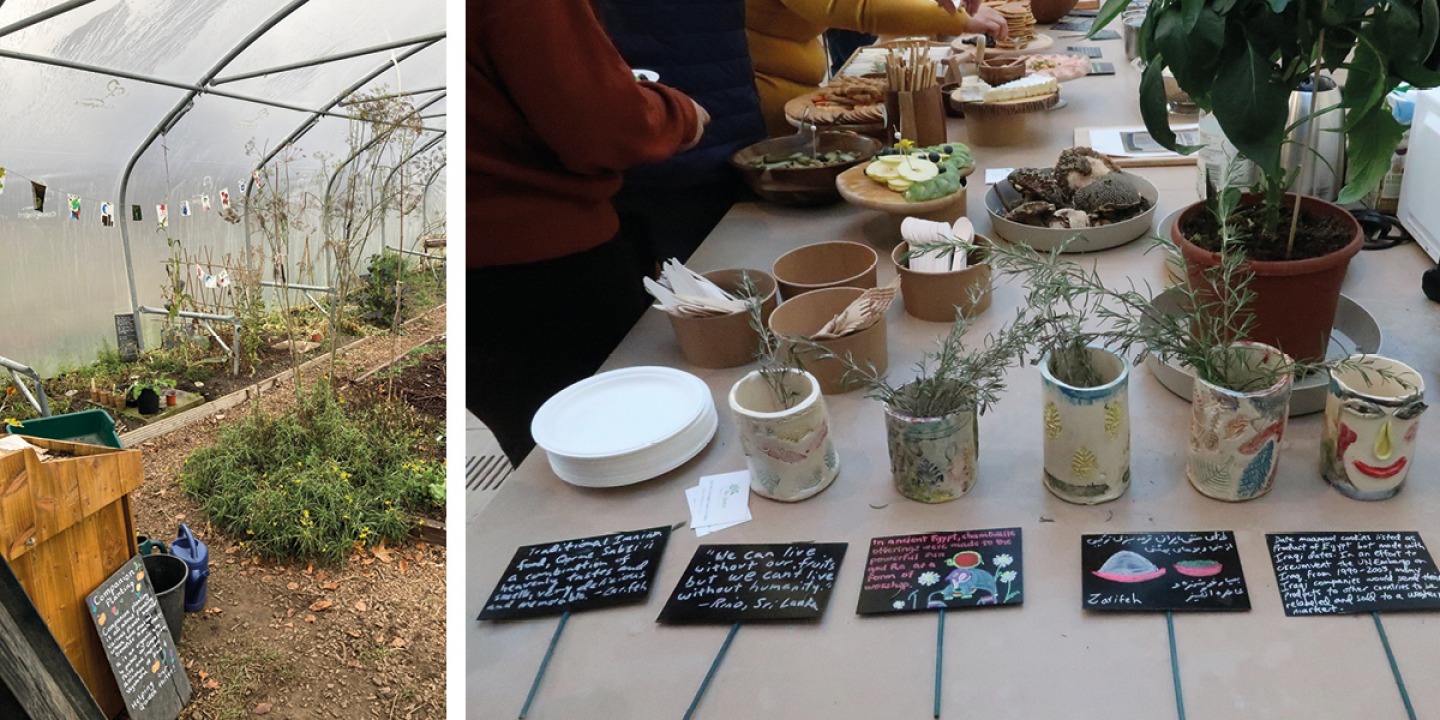
One area of their sustainable practices that particularly surprised me was their work on beekeeping. Since 2016, the Comfrey Project have had their own beehives, but two recent partnerships helped them hone their approach.
‘At the moment we work very closely with North East Young Dads and Lads [another local charity] who have a very strong beekeeping project,’ says Eleni. ‘Our bees apparently were the lazy kind, so they didn’t produce much honey. North East Young Dads and Lads made sure that we now have the right type of bees and, in fact, they’ve been delivering accredited beekeeping training with some of our volunteers and some of their lads. When it’s the right season, they’ll come here every week – the last couple of years we’ve had about six jars of honey!’
Another important collaboration has been with Bees of Bensham, a two-year project run by Gateshead-based community interest company, Dingy Butterflies. As Eleni explains. ’It’s all around raising awareness about the natural environment and mostly about wild bees because there is so much emphasis on the bees which actually can affect the ecosystem. When we decided how many beehives to have here, we consulted with them to make sure that the native bees we have are not going to be affected.
Read More: How Pine Martens Are Making a Comeback in the UK
‘They did a survey with our volunteers and they found nine species of wild bee just in the garden alone. So in the garden we have the growing part, and then we also have the wildflower meadow which is all about developing wildlife.’
The Comfrey Project’s work isn’t just confined to their own sites. An important part of their mission is to help their volunteers to integrate into the local community. ‘We are a very small charity,’ explains Eleni. ‘And one thing I noticed about working in the charity sector in the past, is how people can become really confident in a particular setting, but outside that setting, they didn’t have the same confidence.
‘Knowing that there were huge impacts that contact with nature does have for mental well-being and socialisation, we thought: how can we amplify that benefit for the rest of the community and at the same time actually give our volunteers that chance to integrate properly and gain confidence in the real world? Because our aim is not to keep people here all the time, our aim is to be made redundant in somebody’s life. So we found different partners in the community: from other charities to care homes, and local schools.
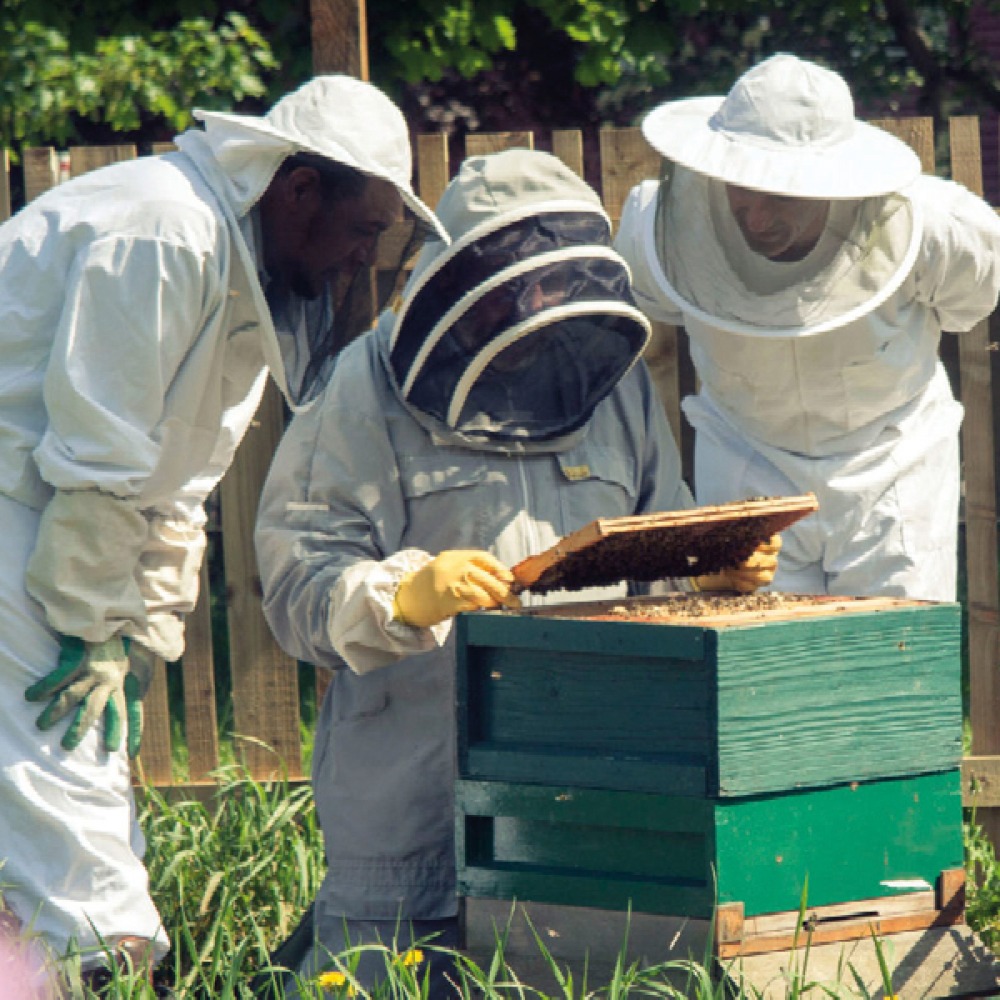
‘For example, with the care home, first they helped make the outdoor area nicer for the residents. Then they would go every month for a whole year, delivering different growing workshops, different nature craft workshops, socialising with them and then some of the residents there started coming here because they’d built friendships.’
One of the Comfrey Project’s most prominent partners in the local community has been Baltic Centre for Contemporary Art in Gateshead. They have a long-standing relationship with Baltic, which was recognised as a ‘Gallery of Sanctuary’ for its work supporting refugees in 2019. Most recently, the Comfrey Project collaborated with the artist Michael Rakowitz on his exhibition ‘The Waiting Gardens of the North East’. The exhibition, which runs until May, uses real plants growing within a ruined garden as a metaphor for histories of forced displacement.
‘In the development phase of that exhibition, Michael Rakowitz came here to discuss with people about their experiences and he ran a workshop as well. Some of the artefacts in the exhibition were actually created during that workshop.’
This led to their most recent collaboration with Baltic, in which they held one of their CommuniTEA events inside the exhibition.‘The CommuniTEA parties were something that we started during Covid. We created loose tea sets that people received at home and we’d all meet with our favourite brew over Zoom. We started just chatting about “what tea did you choose to drink today?”. Teas in their country, and different traditions and memories would come up and then [we could] just talk more easily about what’s going on right now and how people are struggling. We found that tea was a really nice way in for making some connections. It’s such a simple thing, and when we started coming back together, we started doing that face to face as well.’
Baltic also organised customer service training for the volunteers hosting the event, and worked specifically with a group of Afghani women to create abstract designs inspired by their culture, patterns commonly found in henna. Their creations were used to decorate mugs for the communiTEA and mandalas that visitors could colour in.
Read More: Meet the Bradford Maker Creating Silver Clay Jewellery From Fingerprints
The support from Baltic didn’t end after the event either. ‘Some of [the volunteers] said that they were interested in setting up their own businesses,’ Elani explains. ‘Baltic will be helping them with the accredited training that they need and some business development support, which is great.’
In the half-hour that I speak to Eleni, the sounds of music and voices outside her office have been slowly but surely building. We head out just in time to disrupt a game of pass-the-parcel with a wave of enthusiastic greetings for Eleni.
Two of their long-standing volunteers, Belmira and Rashid, make sure to show me around the garden before I go. There isn’t a lot growing at this time of year, but it’s clear they know every corner in detail: they reel off the names, origins and uses of plants as we wander around, pruning wayward leaves as they do so. Their expertise is the result of a long-term commitment to the project (Belmira has been volunteering here for 15 years now) and they aren’t the only ones.
‘We’re here for as long as people need us,’ says Eleni. ‘We’re a family: we don’t tell people “Okay you’re well now, just go”. Some people will continue, some people will come back when circumstances change and they need us again, and some will return to volunteer after they’ve secured a job. It really is a Comfrey family more than anything else.’
thecomfreyproject.org.uk




